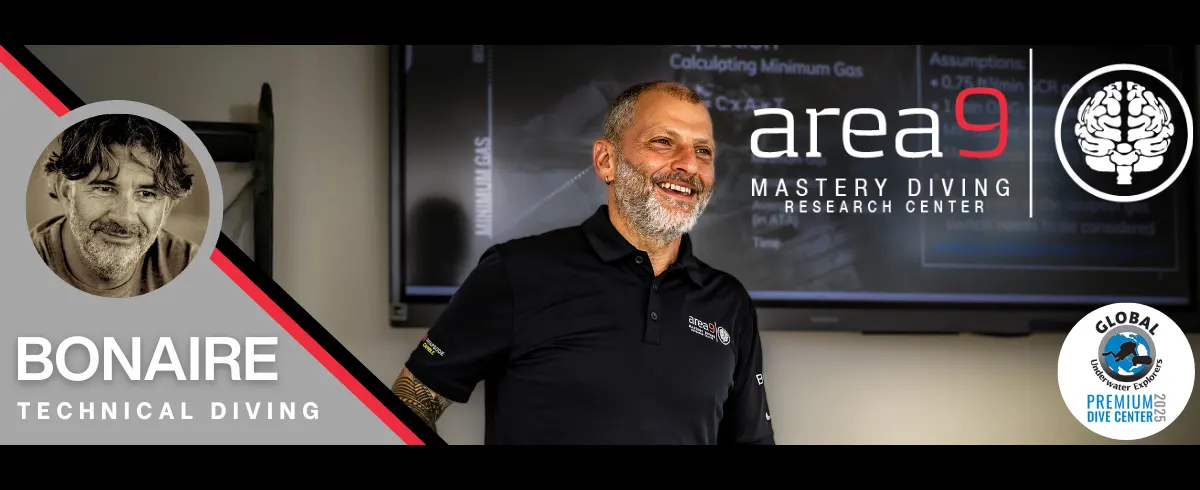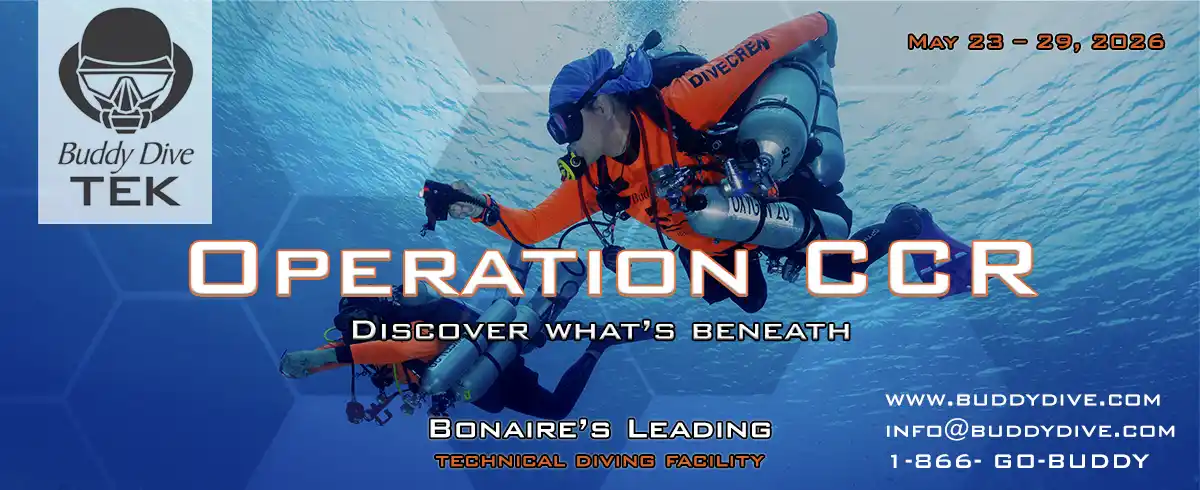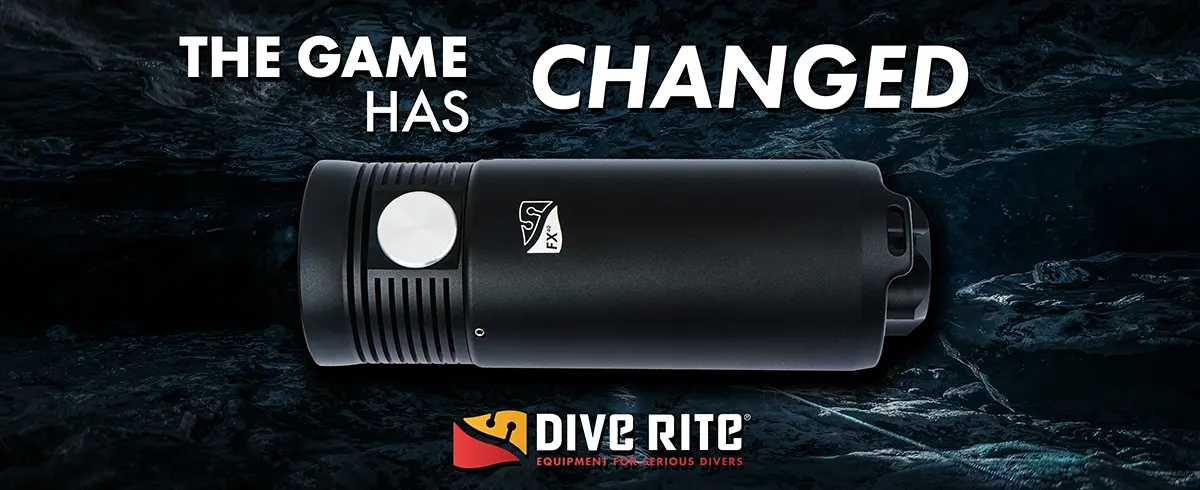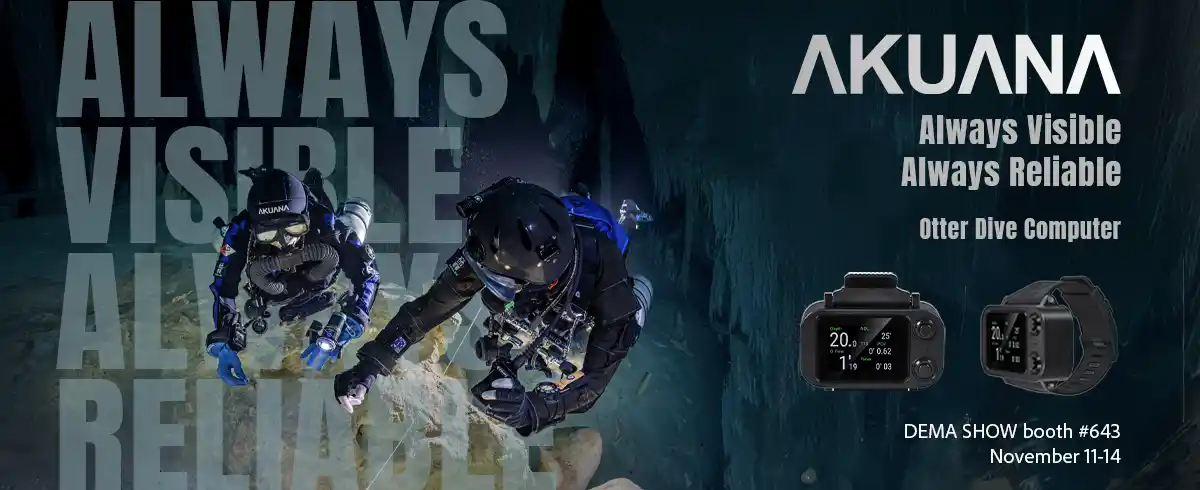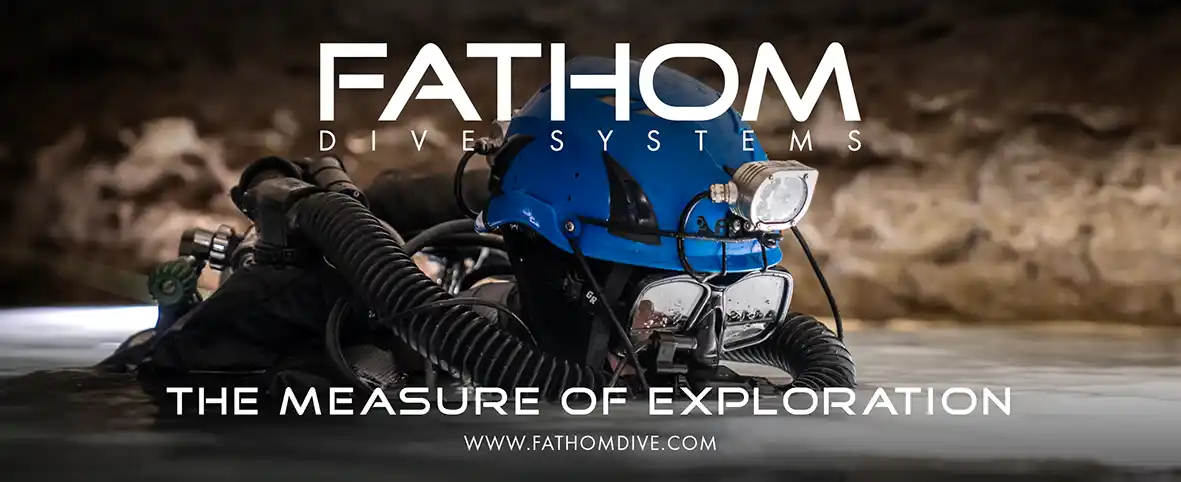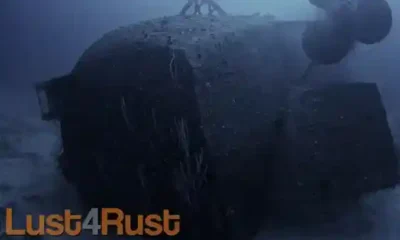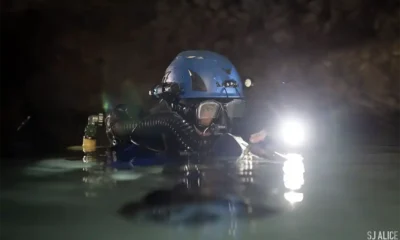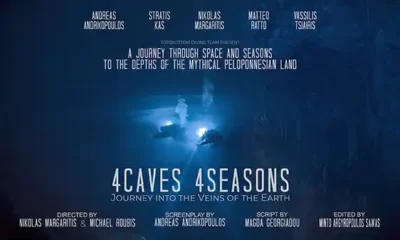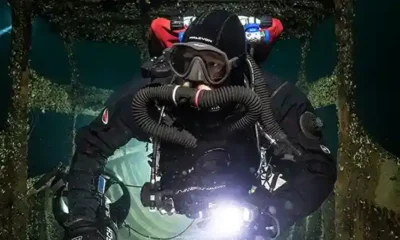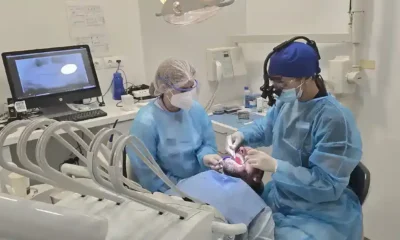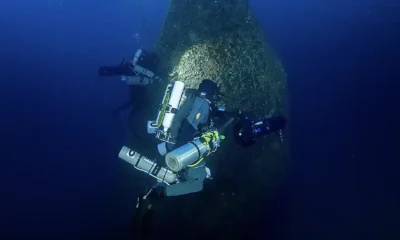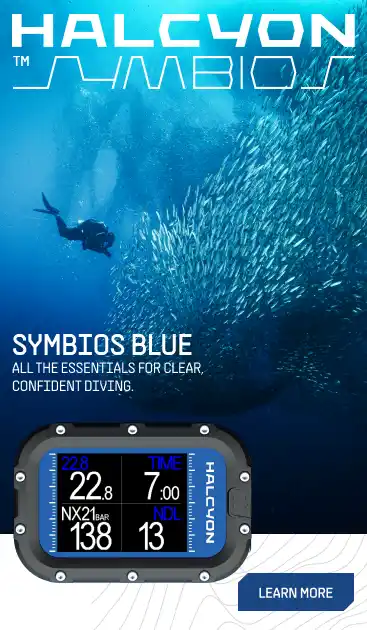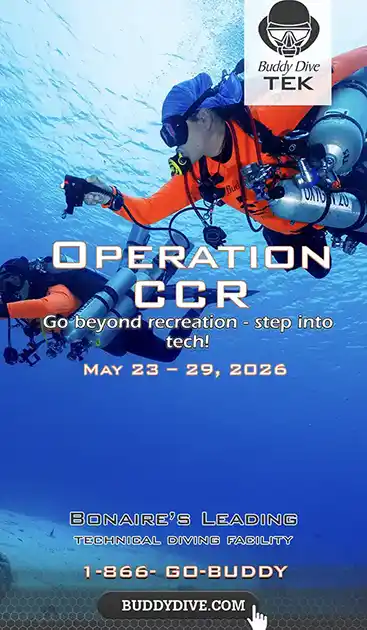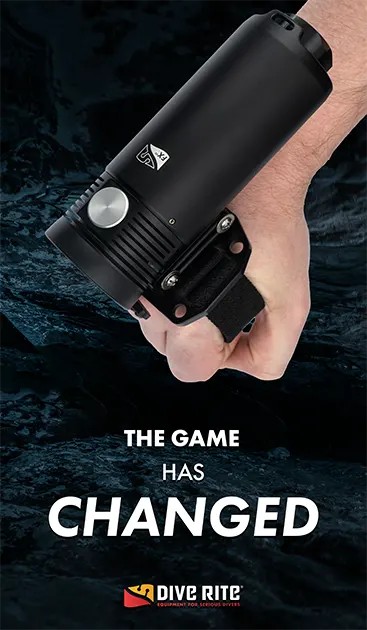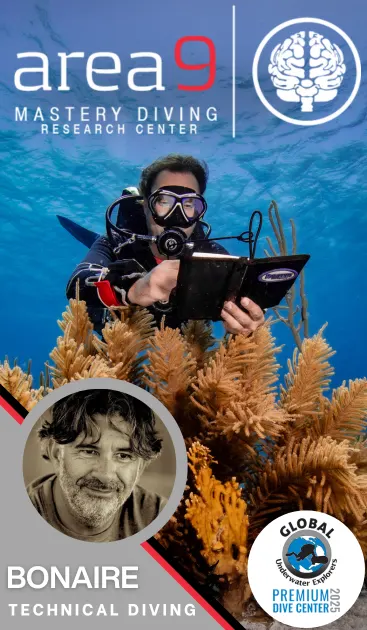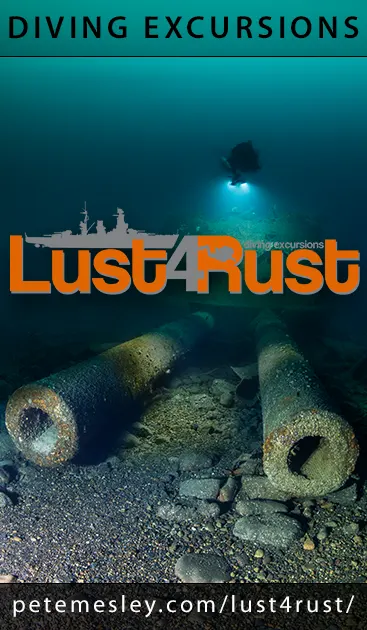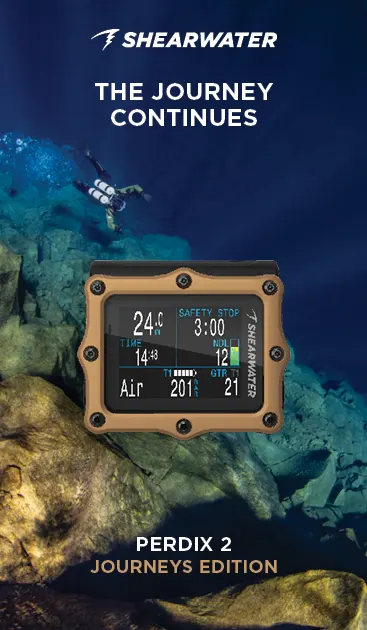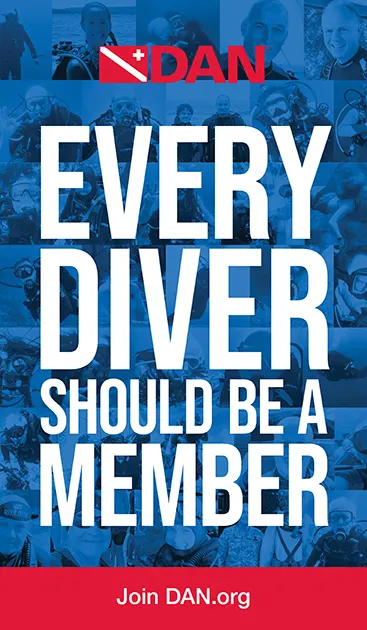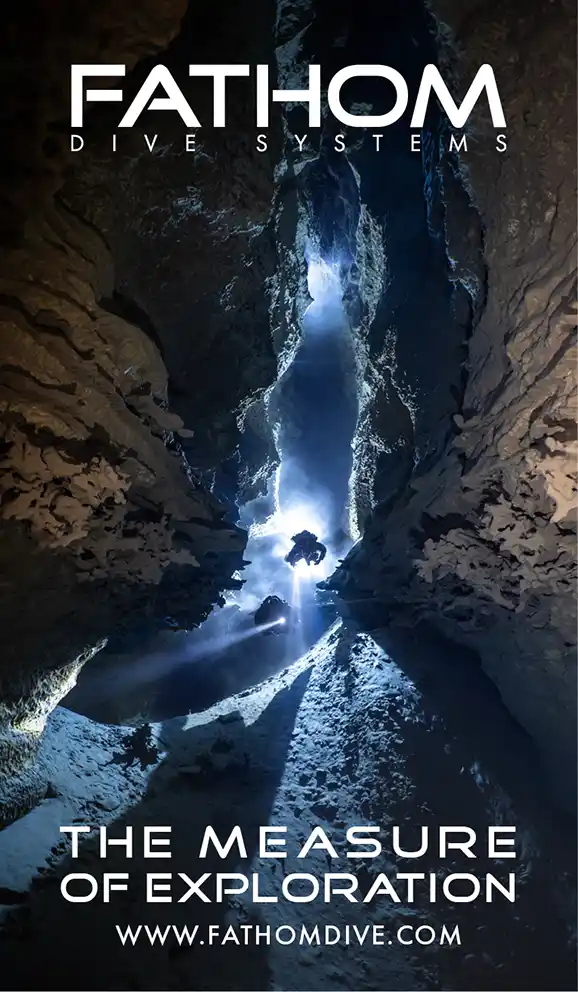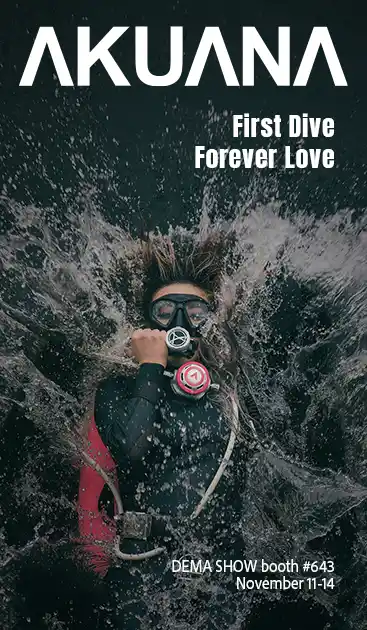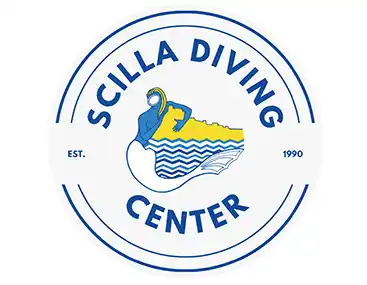

Community
Owning a Dive Shop—It’s Not for Everyone
Every diver wonders: What if I owned a shop? Tanks, boats, freedom. But as Benjamin G. Hadfield V reveals, the reality is far different. It’s less about diving — and more about survival, leadership, and building a business that won’t sink.
By Benjamin G. Hadfield V
Header photo: Nikki and Benjamin celebrate Valentine’s Day in an unusual way — by going ice diving!
NOTE: Ownership of Stuart Scuba LLC has been formally verified through signed documentation provided by the company’s managing member(s). This article has been reviewed and remains published in good faith, with all information accurate to the best of our knowledge as of October 2025.
I met my beautiful, intelligent wife Nikki diving because … well, of course. We became dive buddies, then best friends, then got married—best move ever on my part—and now, all these years later, we’re dive shop owners. There’s so much more to the story, so let me tell you a little about our journey, just in case you’ve ever thought, “Gee I’d like to own my own dive shop.” Maybe you’ll be inspired, maybe you’ll cross that off your bucket list, but either way, I promise you’ll get the good, the bad, the ugly of the story.
First off, I’m a bit of a spreadsheet kind of guy—a man with a plan. But, with prayer and reflection, I’m also inclined to be willing to work hard and even take a risk. As for diving, I started off as a weekend diver. But once I got into it, there was no turning back, and somewhere along the way, diving stopped being a hobby and became a passion. I went from assistant instructor, to full instructor, to instructor trainer. My background as a consultant served me well in this transition. I found that teaching someone to dive is about building trust, communicating clearly, and giving them the tools to succeed—with wetsuits rather than PowerPoints.
At some point, Nikki and I began to realize there were divers who were looking for a community to be a part of—not only to dive with and teach—but to share stories with. We loved being in the dive community and felt we were ready to start creating that same experience for others. To that end, I’d been diving with an amazing shop in South Florida. There were great people there, incredible dive sites, and a fantastic community. The owner mentioned that he might be ready to sell, and we were interested. The purchase took over a year, with both of us sometimes thinking it wasn’t going to happen, but we finally managed to find a way for everyone to be happy. I was in my early fifties by then, and we were living in Idaho.
“I was so ready to be no longer tethered to the corporate world, and I was excited to see this dive shop owner dream become a reality.”

For some time, Nikki and I had been traveling to dive shops around the country doing research, and we had noticed patterns. Many of the businesses were more like clubs run by someone who loved to dive but hadn’t managed to do what it took to run a profitable operation. Rather than focus on margins, growth, or scalability, they were more focused on their next dive trip.
On the flip side, the truly successful dive shops operated like a business first. The owners understood sales, marketing, customer experience, and profitability. Diving, for them, wasn’t the main goal—it was simply the byproduct of running a successful shop.
Here’s what really stood out: 95% of dive shops fell into that first “club” category, while only about 5% were true businesses. And those 5%? They were thriving. As someone who’s always lived by the mantra, “If it makes dollars, it makes sense,” this was a revelation. I wasn’t about to spend seven figures on a pipe dream or end up eating Top Ramen for the rest of my life just to say, “Hey, I own a dive shop!”
So, we approached the shop with the same mindset I’d used throughout my career: Treat it like a business, plan for success, and make decisions that are financially sound. Nikki and I weren’t here to run a glorified scuba club. We were here to build something extraordinary.And with that in mind, we took the plunge—both feet in, wetsuits zipped up, and ready for the dive of a lifetime.

My New Circus: Observing the Clowns and Taming the Lions
Buying a business is like walking into a circus. The tents are already set up, the performers have their routines, and, whether you like it or not, you’re the new ringmaster. This wasn’t just my circus now; it was also my monkeys, elephants, and that one clown who insists on juggling chainsaws while blindfolded.
Thankfully, I didn’t charge into the Big Top waving my whip and barking orders. No, I had learned a better strategy years earlier from one of the most brilliant commanding officers I ever worked under. His mantra? “Enter quietly. Observe. Take notes. Assess resources. Listen closely. And most importantly, don’t try to ride the unicycle before you’ve figured out where the net is.“
The Wisdom of the Old Guard: Talkers, Whisperers, and Silent Rebels
Based on this advice, I planned to give the seasoned veterans at the shop space to speak their minds, share their wisdom, and, if necessary, vent their frustrations. In doing so, I have to say, not all of what they told me was golden, but truths were revealed and, best of all, they expressed a genuine desire to help. I was encouraged, but watchful, and I promised them no big changes for ninety days. During that time, I resisted the urge to fix what I didn’t yet understand. To be clear, I could see that this wasn’t just a business—it was a living, breathing, slightly chaotic family, and I was leading them into the next act.
Finances
When I bought a dive shop, I didn’t get an instant cash cow. Bills were coming in like a title wave, and the money pool was more like a puddle. Meanwhile, there I was—learning that my boats needed some mechanical resurrection when I also discovered that my crew was still lamenting losing the former owners and were on the fence about whether to stay or go.
“What I got was low inventory, a long list of maintenance needs, and many, many surprise expenses, including trip costs, boat repairs, and replacement costs for a fleet of aging vehicles.”
My advice? Make sure you have a financial cushion before buying a dive shop. When the storms come—and they will—you’ll need it. Sad aside: I bought my shop in October. Hurricane season was over, right? Wrong. Within months, two hurricanes roared through, shutting down entire cities. One of them brought tornadoes with it—150 in one night!
The upside? While nobody wants to dive before or during a hurricane, business booms after a hurricane.

As always, cash flow was our primary concern in the early days. A U.S. Bank study found that 82% of businesses fail due to poor cash flow management, i.e. not having enough funds to keep the business afloat—a ticket to disaster. Me? I had a credit card plan: Use it for protection, keep the points, and pay it off every week.
So, what happened to my detailed, well researched business plan? Straight into the trash. Why? Because according to my still-wavering staff, I was too green. I, in fact, didn’t know how things worked around there. In spite of my years spent building a reputation as a dive instructor and technical trainer, that was in Idaho. In my new digs, nobody cared. Local dive communities are tight-knit, and I was the new guy. I was met with, “It’s different here,” and “People dive to see things here.” Whereas I had spent my career training divers to look at their hands instead of reefs and wrecks…
So, yes, my original business plan was mostly discarded, but I kept the parts of it that were useful. Nevertheless, I was starting from scratch; rebuilding a network, and earning the trust of the local community—that was going to take years.
The Boats: AKA “Bust Out Another Ten Thousand”
Owning dive boats is part customer service, part mechanical skills, part plumbing chops, and part crisis management. Dive boats, like cars, are depreciating assets that always break down at the worst possible moment.
I needed a plan. To form one, I gathered every scrap of knowledge I could find, I talked to my staff about what worked vs. what didn’t, and I wrote it all down into a Standard Operating Procedures (SOP) manual. My staff actually loved it! With a clear plan of attack, it felt like we were all on the same page and swimming in the same direction.

The Takeaway?
Buying a dive shop isn’t just about tanks, boats, and customers—it’s about running a business. And running a business means managing cash flow, building a strong team, creating a sustainable revenue model, and, most importantly, thinking strategically instead of just reacting to daily chaos.
And here’s what I found out:
- Your money will disappear faster than gas escapes from a free-flowing regulator. You’re not just paying for inventory and boats—you’re covering payroll, insurance, maintenance, marketing, certifications, permits, and unexpected repairs that always cost more than you budgeted for. Managing cash flow isn’t optional; it’s your lifeline.
- Your role shifts from “diver” to “executive.” You make things happen for everyone else now. You’re the one responsible for making sure everyone else’s tanks are filled and waiting.
- You’re no longer the primary instructor. You’re the backup plan for last-minute cancellations and overflow classes. Your real job is ensuring that the business runs smoothly. I hand off as much teaching as possible to my instructors so they can focus on what they love while I focus on making sure they have a dive shop to work for.
- You have to be proactive. Success is about capitalizing on opportunities. If you’re putting out fires, you’re in survival mode. Instead, develop a proactive strategy. Find your biggest growth potential, maximize customer lifetime value, leverage digital marketing effectively. The best way to predict the future is to create it.
“The dive industry is a business, and the businesses that thrive aren’t just the ones with the best service—they’re the ones with the best strategy.”
Does a Dive Shop Make Money?
In my experience, the answer is yes, but it takes careful planning, organization, and hard work. It’s also not for everyone. For many, working for a dive shop is a much better deal. There are undeniable benefits: discounts on gear, free tank fills, free boat trips, discounts on dive travel, and the ability to teach for store credit and travel on someone else’s dime.
A great instructor will always do well—whether they own the shop or work for one. Just make sure you know which side of the boat you want to be on before you take the plunge, because owning a dive shop is a different story. If your goal is to build and grow a business, put in the hours, and make it thrive, then yes—a dive shop can and will make money.
Why Us?
We bought a dive shop because we were ready. We love teaching but, more importantly, we love a good challenge. Just tell me, “That can’t be done,” and watch me do it. We also wanted a chance to build something meaningful that we could be proud of. Nikki and I never set out to build a business in order to line our own pockets. That was never our goal. Instead, we had a clear vision for Stuart Scuba.

Our Goal
That vision? To create a place where people—whether seasoned dive pros or starry-eyes deck hands—can grow, thrive, and, yes, pay their rent. We do whatever we can—we even sometimes discount boat seats—to make sure that the people who make it all happen can take care of themselves and their families.
Our business lifts others. We reinvest everything back into the shop. We don’t need much in life to be happy; we are blessed to be in a position where we don’t have to take an income from the dive shop. And while, yes, it’s a lot of work, I wouldn’t trade it for anything. Every day, I get to support others as they find and dive into their dreams.
A year into our venture, we’ve met so many great people who wanted to be part of our success and who welcomed us like family. We made the changes we felt were necessary, and some of it was painful, but certifications are now at an all-time high, boat bookings are up, and we’re on track for the most significant gross and net year the shop has ever had. Why? Because we prioritized three things:
- We were present and accountable. Every day.
- We kept our promises and led with integrity. Always.
- We supported our community and our divers. We cared.
Enjoyed this read? Here are more stories that tie into it.
DIVE DEEPER
InDEPTH: The Economics of Being a Tech Diving Instructor (2025) By Darcy Kieran (2025)
InDEPTH: It’s The Data, Silly: A Lookback at 2023 and a Peek at 2024 for Scuba Diving Market Surveys & Studies By Darcy Kieran (2023)
InDEPTH: Can You Really Make Diving a Day Job? The Realities of Full-Time Tech Instruction THE TALKS By Stratis Kas (2025)
InDEPTH: Finding Zen During A Pandemic: Open a New Dive Center By Amanda White (2021)

Benjamin Hadfield is an Instructor Trainer and technical diving expert whose passion for diving has taken him to breathtaking locations across North America. From the high-elevation lakes of Idaho and Wyoming to the vibrant reefs and historic wrecks of Florida, his diving adventures are as diverse as they are inspiring. He has earned a reputation for excellence in diving education, and his expertise in technical diving has made him a well-known figure in the diving community. Benjamin and his wife Nikki own and operate Stuart Scuba, based in Stuart, Florida. Stuart Scuba caters to a wide range of divers, from shallow reef explorers to technical wreck enthusiasts. Benjamin continues to foster a vibrant diving community and share his passion for the underwater world through his engaging “Teach Me to Dive” Facebook and YouTube channels. Together, he and Nikki are not only shaping the future of Stuart Scuba but also inspiring divers everywhere to push their limits and explore new depths. Visit: www.stuartscuba.com

